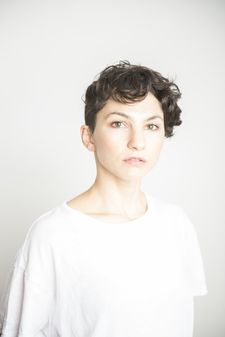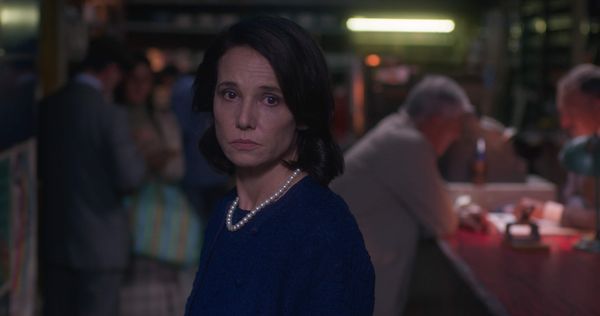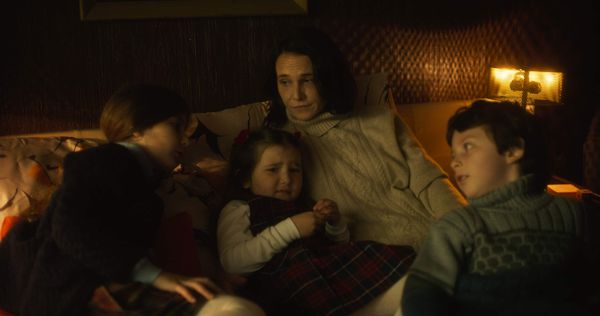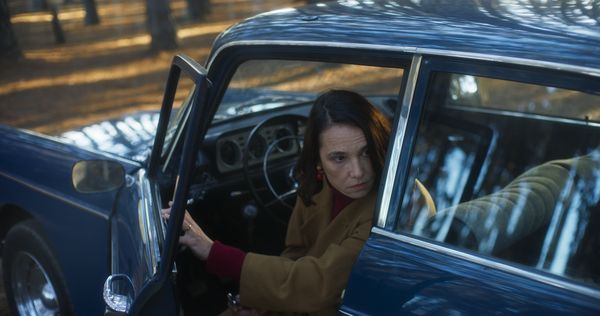Amber Wilkinson: There have been other films about dictatorships in South America before, but yours is quite unusual because it's got such a strong female perspective in it. How did you get drawn to the idea of telling a female story underneath the regime?
 |
| Manuela Martelli: 'I got into this subject in a tangential way because I started asking myself about my grandmother' Photo: Luxbox Films |
She got into art school and everybody was 20 years younger than her. So, for me, this contrast between these happy moments of the daily life of a housewife, and knowing that she had had this tragic life, made me ask about her life. And she died in 1976. So I said, "Okay, what happened during that year, when she died?" And then I started asking myself about how this political context was getting into the house. I started from the very intimate point of view of a woman and then the context came in a way. The movie also came as a response to all the history books that I was reading in school that were all written by men. I never saw family pictures in a history book, you know, and I never saw a letter from a woman. So was it okay, how do we capture this period from this vision?
AW: How was your collaboration with Alexandra Moffat on the script?
MM: I think I already had a final draft of the script when I called her and it was very important what we did. What happened was we designed much more the relationship with Elías and so then I think the film got a pillar, a bit of a structure. Before that the film was a bit more messy.
AW: The film feels very cohesive because you've got that really strong colour palette that you're using, right through the film. So all those pinks and blues that you highlight in the opening scene, they come back right the way through the film. Was that something that had in mind from the start - this strong look?
MM: I went to art school and I'm very much into colours. I think these colours were very linked to the character. I mean, the character of the sea, the ocean, which is a character in the film. Yeah. And the character of this bloody colour, which is her in a way. So I knew I was interested in colour, but it wasn't imposed, they just really came through the story.
AW: The costumes are also a really big indicator in the film. Not just that she is wearing these incredibly well-tailored pieces - so we can already see what class of society she is and how important it is for her to have the right set of pearls with the right dress, or the right coat. But also, later on in the film, she kind of revolts against her own clothing, she savages a piece of it. She’s sort of defined by what she is wearing to a degree.
MM: Costume was really important. This idea of the different costumes she uses, because when she starts getting involved with Elias then she starts using another coat, which is kind of like a costume. The other dress, the one in zebra print [which she cuts up], is reminiscent of something that we don't know, some subject with her husband. There's all this thing of her cutting it and giving it to the granddaughter at the end. It was one of the resources to talk about things that were on the outside. The movie plays a lot with the idea of how can we bring the outside into the inside? But not in an obvious way.
MM: I really felt I needed the contrast with what's happening because it seems that nothing is happening. And then there's something in her mind and something under the surface. So with Maria, we thought, how can we describe this sound? Then we came to the idea of synthesisers. I really wanted to get out of the idea of how period movie music should be. It's always this orchestral kind of music. And I said, ‘How can we escape from this?’ Then we came up with this idea of the synthesisers. But the funny thing is that the synthesisers are from that period. They are mostly used in horror films. That was really interesting, like, “Okay, let's do some horror music film from that period, and put it into a film that doesn't look like horror”.
AW: The whole film has a sort of almost casual dread about it. We know that the threat to her is very real, there's no doubt that it's going on in her head or anything crazy like that, which I really love, that she's a totally believable character in this world. But equally, you're not sure whether what's happening to her is a result of the regime or just a result of her being female in a world where the guys are like, ‘What are you doing here? Because you're a woman and you're in an environment we're not expecting you to be in’. The interplay between those things is very interesting. It's like being doubly oppressed.
MM: This is something I wanted to bring in. The film plays a lot with ambiguity. Why is she in danger? Is she in danger because she's a woman? Is she in danger because there's a dictatorship? I think it's important to feel that she doesn't really understand where the danger is coming from now.
AW: Her motives are very ambiguous as well, you know, is she doing it simply because, in a way, by doing it, she's kicking against her own little box of patriarchy, or is she doing it for a bigger political motivation? It's very interesting. She is obviously a very complex and ambiguous character - I really liked that you don't indicate what the answer is to that.
MM: Yeah. And this is something that came to me after doing some interviews with people who were involved in politics during that period. And then mostly people from the resistance. They would always say to me that they didn't know anything that they didn't know if their friend was not their friend. They didn't know if the car that was outside was any car or was spying. Everything was so it was so liquid was so like, things could be one and could be the other it could everything could be a monster or not. This idea of ambiguity and not having statements in the film came from me as also in a very organic way because of this period.
AW: Did having a background in acting yourself helped you to sort of get good performances and to be able to create the environment for good performances?
AW: It’s a brave project to take on a period drama like this, because that comes with all sorts of technical difficulties for the look and feel and keeping it consistent. Were you ever daunted by that.
MM: You know, the period came as a consequence. And then I was trapped in the period, in a way, because then I understood how hard it was to make a period film. At the moment when I started writing, I never thought it was going to be as complicated as it was. But there is also something that I really love about film and this is kind of a very childish need to be able to take this time machine. I love this idea of going backwards to revisit the past. For me it’s like a childhood dream.
AW: I’ll look forward to your next film
MM: I'm already writing, it’s the only way to get over the depression of finishing one. It’s set in the Nineties.

























